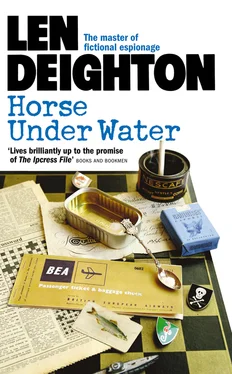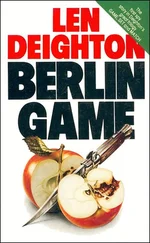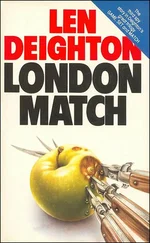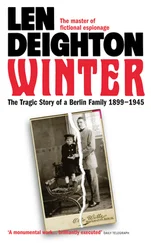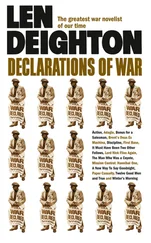Rural life was enchanting but it was too good to last. Art directors of advertising agencies and magazines all preferred to deal with artists they could shout at in person. As the flow of illustration jobs diminished, I had more time for writing. But money diminished too and I reluctantly gave up my idyll and returned to London. (Not so long ago I went back to find the little cottage. It was still exactly as I remembered it but no smoke rose from the chimney. It was unoccupied and the windows were unwashed. I shed a tear and stole away.) But in those weeks of waiting for work to arrive I had continued writing the uncompleted story I had begun in Porquerolles. By the time I left for London, the story had become a book and it was more or less complete. But being almost broke I had no time for anything other than work. The manuscript of The Ipcress File was put on a shelf and forgotten until I met a literary agent at a party in London’s Swiss Cottage.
It was when The Ipcress File was accepted by a publisher that I took seriously the idea of writing books for a living. They were even talking about making a film of it. By that time I had done enough drawings to be solvent again, and with enough money to be on vacation in a dramatically situated, but somewhat shabby, cliff top apartment in Portugal. It was there on a balcony overlooking the Atlantic that I started scribbling in longhand the story that became my second book, Horse Under Water . In those days Southern Portugal was a remote region. There was no airport nearer than Lisbon and the journey from there to the south coast was gruelling. But it was worth it. The Algarve, on the very edge of Europe, is a pictorial region and I always delight in being there.
Many of the ideas in the book dated from earlier times. In the nineteen thirties, when I was a small child, my father had taken me to many museums but I particularly enjoyed the War Museum. To me the tanks, artillery pieces and aircraft were like gigantic toys and I have never lost my fascination with large examples of machinery.
So when I moved into the Elephant and Castle neighbourhood of London – where I lived for many years – the War Museum in Lambeth was within easy walking distance and it became a haunt of mine. It was a time when the Army, Navy and RAF, and many civilian agencies, began passing over to the War Museum books, films and documents that had become history rather than operational reference. A proportion of these items were technical ones seized from various German archives at the end of the war. I found it fascinating but the Museum found them an almost overwhelming burden.
In the final year of the war, there had been tremendous scientific advances in undersea warfare and I pursued these reports – British, American and German – with particular zeal. The War Museum’s librarian asked me to help by categorizing the material I examined, so that I became an unofficial member of the Museum staff. At the time, I had no idea that the notes I made would be used for anything other than my interest in history. It was during my stay in Portugal, when I was asking local people about German activity there during the war, that I recalled all that underwater warfare material. The book’s plot fell into place and I started writing.
Like The Ipcress File , this second book was started with a fountain pen and locally purchased school exercise book. I had not named the hero of The Ipcress File . A Canadian book-reviewer said it was symbolic and pretentious but in fact it was indecision. Now, writing a second book, I found it an advantage to have an anonymous hero. He might be the same man; or maybe not. I was able to make minor changes to him and his background. The changes had to be minor ones for the WOOC(P) office was still in Charlotte Street and Dawlish was still the hero’s ‘chief’. There were very few modifications but I realized that (although Deighton is a Yorkshire name, and I had lived briefly in the city of York) identifying him as a northerner would make demands on my knowledge that I could not sustain. It would be more sensible to give him a background closer to my own.
The indomitable Harry Saltzman, who had coproduced the James Bond films and was making The Ipcress File , solved everything with the sort of unhesitating practical move for which he was renowned. Michael Caine was cast to play the hero of that film and Michael was a Londoner, as I was.
He was named Harry Palmer. It was the right decision. Michael and the man of whom I’d written fused perfectly. I am indebted to Michael for the dimensions his skill and talent provided to my character. Having no underwater skills, knowledge or experience, I went to the Royal Navy and asked for help. Everyone at the Admiralty was one hundred per cent helpful. They sent me to the Royal Navy’s diving school and this experience is described here more or less as it happened. It was only when I was half-way through the course, and up to my neck in water on the ladder of the diving tank, that I confessed that I could not swim. They were shocked and apprehensive on my behalf but as I said: ‘What is the point of wearing all this scuba gear if you can manage without it?’ The chief instructor gave a grim smile and nodded me down into the water. Those were the days when you didn’t have to wonder why health and safety allowed the war to be won!
Len Deighton, 2009
1 Parley
2 Nostrum
3 Air
4 Me
5 Pistol
6 Gib
7 Brief
8 Road
9 Gun
10 U
11 Aid
12 Frog
13 Read
14 Sim
15 Um
16 Bills
17 Lore
18 Fado
19 Die
20 Foe
21 Sin
22 Sex
23 Boat
24 Yarn
25 Yes
26 Ball
27 All
28 Tip
29 Pray
30 Entreaty
31 Aid
32 Old
33 Nods
34 Rude
35 Guard
36 Black
37 Reread
38 Gas
39 D.D.
40 A.I.T.C.
41 Film
42 Reason
43 Sex
44 UNO
45 Deep
46 Life
47 Forgo
48 Sings
49 Echo
50 File
51 Shoes
52 Set
53 Baix
54 Yo
55 Jam
56 Beep
57 Ail
58 Tack

Horse Under Water
Marrakech: Tuesday
Marrakech is just what the guide-books say it is. Marrakech is an ancient walled city surrounded with olive groves and palm trees. Behind it rise the mountains of the high Atlas and in the city the market place at Djemaa-el-Fna is alive with jugglers, dancers, magicians, story-tellers, snake-charmers and music. Marrakech is a fairy-tale city, but on this trip I didn’t get to see much more of it than a fly-blown hotel room and the immobile faces of three Portuguese politicians.
My hotel was in the old city; the Medina. The rooms were finished in brown and cream paint and the wall decorations were notices telling me not to do various things in French. From the next room came the sound of water dripping into the stained bath tub and the call of an indefatigable cricket, while through the broken fly-screens in the window came the musical sound of an Arab city selling its wares.
I removed my tie and put it over the back of my chair. My shirt hung suddenly cold against the small of my back and I felt a dribble of sweat run gently down the side of my nose, hesitate and drop on to ‘Sheet 128: Transfer of sterling assets of Government of Portugal held in United Kingdom, Mandates or Dependencies to successor Government’.
We sipped oversweet mint tea, munched almond, honeysticky cakes, and I took comfort in the idea of being back in London inside twenty-four hours. This may be a millionaire’s playground, but no self-respecting millionaire would be seen dead here in the summer. It was ten past four in the afternoon. The whole town was buzzing with flies and conversation; cafés, restaurants and brothels had standing room only; the pickpockets were working to rota.
Читать дальше
